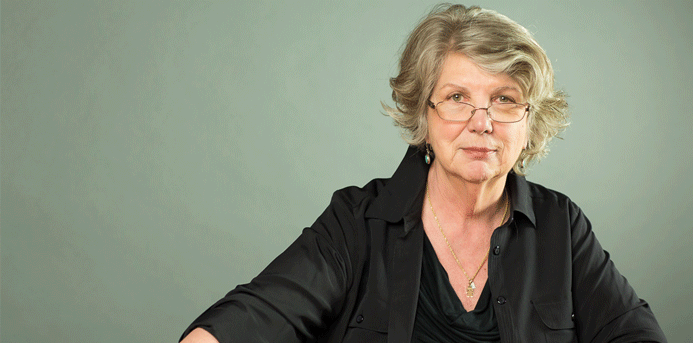Marsha Linehan is funny and self-effacing and seems totally approachable. If she were a talk show host, you’d tune in. Yet, for all her affability, her life’s work has been to pioneer treatment methods for the most difficult-to-treat mental health clients: those at high risk for suicide.
The American Foundation for Suicide Prevention states that “Ninety percent of people who die by suicide have a mental disorder at the time of their deaths.” Linehan discovered that many of her suicidal clients had Borderline Personality Disorder (BPD).
One of the best ways to prevent suicide is by understanding and treating these disorders. To that end, Linehan developed Dialectical Behavioral Therapy (DBT) which combines the opposing ideas of acceptance and change to treat BPD and, as she says, “build a ladder out of hell.” As a Professor of Psychology at the University of Washington in Seattle and Director of the Behavioral Research and Therapy Clinics, Linehan says, “My job is to climb down with my clients and get them out. I get behind them and teach them how to walk the steps.”
She recently spoke at a packed New Trier auditorium on behalf of the Family Action Network about DBT advances and the new edition of her book, “DBT Skills Training Manual.” According to the Centers for Disease Control, suicide is the 10th leading cause of death in the United States. DBT is one of only two therapies that have shown demonstrable success at reducing suicide attempts (the other is Cognitive Behavioral Therapy).
Dialectical Behavioral Therapy is a balance of acceptance strategies and change strategies. It requires nonjudgmental observation of what is working as well as consideration of how to change what’s not. Linehan explains her approach this way: “What do you get when you combine black and white?” Most people say “gray,” but Linehan says “plaid.” “We’re not getting rid of one side or the other or compromising what you think. Instead, you’re always looking for what is left out of your understanding. There is no absolute or relative truth — circumstances are always changing.” Linehan smiles and says, “You can think about that for a while.”
More specifically, there are four components of DBT and each is necessary for successful therapy:
1. Skills Training Group: a 6-month weekly curriculum with 2.5-hour modules on (in this order) interpersonal effectiveness, mindfulness, emotional regulation, mindfulness, distress tolerance and mindfulness again; this series is often repeated for a year-long program.
2. Individual Psychotherapy: weekly appointments to focus on helping clients apply the skills to specific challenges in their lives.
3. Phone Coaching: allows clients access to their therapist between sessions to receive coaching on skills usage and challenges.
4. Therapist Consultation Team: required weekly meetings between a consulting team of therapists to provide support to each other in their work with people who have complex, difficult-to-treat disorders; they share responsibility for each client’s care, with Linehan noting that if the client of another therapist on the team commits suicide, from that day forward you must answer “yes” when asked if any of your clients have committed suicide.
Understandably, the auditorium for the Family Action Network program is packed with therapists and clinicians looking to improve their own diagnostic and treatment skills. But there are also individuals with BPD and parents and other family members who want to find out how to get help. Linehan doesn’t disappoint. Among the good news she shares: Research has shown that DBT isn’t “Linehan-specific.” In other words, anyone trained in DBT can administer it. Even better, Linehan and her team have created a DBT Certification program which should increase the number and availability of providers and offer assurance that certified providers are prepared and capable. She also encourages interested non-therapists to get her book and learn the skills by practicing with a friend or family member.
Further, Linehan shares that she’s developing online skills training and so far it’s shown very good outcomes for people with high emotional dysregulation (those with depression or high anxiety who might find it difficult to get out and attend sessions). “Too many people can’t get treatment,” Linehan says. She’s also working to solve that problem with computerized psychotherapy which, she says, “research indicates, if developed well, works as well as in-person therapy.”
In addition to efforts to get help to those who need it, Linehan is developing a new website featuring her lectures, notes for classes she teaches, exams for students and everything else needed to teach a program in any setting — all for free. Also, she’s working on a “Linehan Suicide Safety Net” to help ease therapists’ fears and guide them through interactions when working with this population. She says it’s “lawyer-approved” and will be online shortly. Linehan is also eager to continue research on why DBT is so effective and to expand to help additional populations such as alcoholics who are suicidal and provide more assistance for struggling adolescents.
For more information: view Linehan’s full FAN presentation, check out Linehan’s faculty page for mental health links and an opportunity to donate to research, or visit Behavioral Tech or Behavioral Research and Therapy Clinics online.
More from Make It Better:

